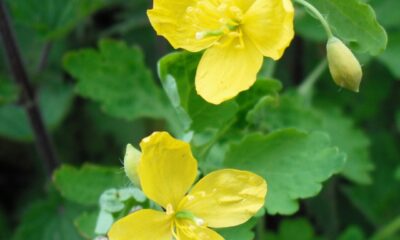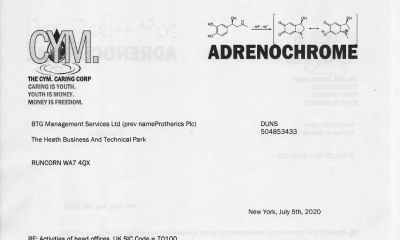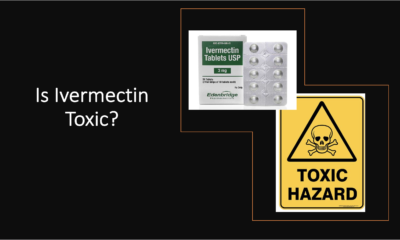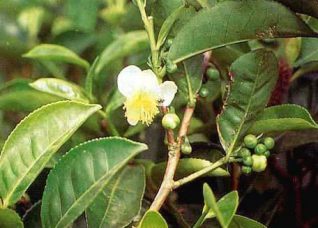David O. Kennedy,1,* Bernd Bonnländer,2 Stefanie C. Lang,2 Ivo Pischel,3 Joanne Forster,1 Julie Khan,1 Philippa A. Jackson,1 and Emma L. Wightman4
Abstract
Green oat (Avena sativa) extracts contain several groups of potentially psychoactive phytochemicals. Previous research has demonstrated improvements in cognitive function following a single dose of these extracts, but not following chronic supplementation. Additionally, whilst green oat extracts contain phytochemicals that may improve mood or protect against stress, for instance species-specific triterpene saponins, to date this possibility has not been examined. The current study investigated the effects of a single dose and four weeks of administration of a novel, Avena sativa herbal extract (cognitaven®) on cognitive function and mood, and changes in psychological state during a laboratory stressor. The study adopted a dose-ranging, double-blind, randomised, parallel groups design in which 132 healthy males and females (35 to 65 years) received either 430 mg, 860 mg, 1290 mg green oat extract or placebo for 29 days. Assessments of cognitive function, mood and changes in psychological state during a laboratory stressor (Observed Multitasking Stressor) were undertaken pre-dose and at 2 h and 4 h post-dose on the first (Day 1) and last days (Day 29) of supplementation. The results showed that both a single dose of 1290 mg and, to a greater extent, supplementation for four weeks with both 430 mg and 1290 mg green oat extract resulted in significantly improved performance on a computerised version of the Corsi Blocks working memory task and a multitasking task (verbal serial subtractions and computerised tracking) in comparison to placebo. After four weeks, the highest dose also decreased the physiological response to the stressor in terms of electrodermal activity. There were no treatment-related effects on mood. These results confirm the acute cognitive effects of Avena sativa extracts and are the first to demonstrate that chronic supplementation can benefit cognitive function and modulate the physiological response to a stressor.
Keywords: cognition, working memory, brain, stress, phytochemicals, polyphenols, triterpenes, Avena sativa, green oat extract
Go to:
1. Introduction
Immature or “green” oat extracts and tinctures, made from the higher aerial parts of oat plants (Avena sativa L.), have a long history of medicinal use, encompassing a number of psychotropic indications, including insomnia and anxiety [1,2,3]. Avena sativa extracts contain a wide range of potentially bioactive secondary metabolite compounds [4] that play ecological roles for the plant [5,6,7]. These consistently include a range of terpenes, including genus-specific triterpene saponin “avenacins”, and a broad spectrum of phenolic acids and polyphenols, the latter including flavonoids and avenanthramides, a group of genus specific atypical phenolic amides [5,6,8,9,10].
These structural groups of phytochemicals include numerous compounds that have been shown to both exert wide ranging cellular and physiological effects and to modulate human brain function [7,11]. On a mechanistic level, polyphenols, including avenanthramides [8], have been shown to interact with diverse components of mammalian cellular signal transduction, including brain-specific direct and indirect interactions with neurotransmitter receptors [11,12,13,14]. Similarly, triterpenes may also modulate neurotransmission via direct receptor interactions [15,16] via inhibition of the enzymes that catalyse the oxidation or hydrolysis of neurotransmitters [7,17,18,19] or via modulation of the functioning of the glucocorticoid and estrogen systems [7,20,21], the latter due to a structural similarity to these triterpene mammalian hormones [7]. These mechanisms potentially underlie the observation of improved cognitive function following polyphenol- and triterpene-rich herbal extracts [22,23,24,25,26,27,28]. In addition, extracts of Avena sativa, including those from an accession of the plant material used to make the current study’s extract [29] have previously been shown to specifically inhibit the enzymes monoamine oxidase B (MAO-B) and phosphodiesterase 4 (PDE4) [30]. This adds the upregulation of monoamine neurotransmitter function to the potential mechanisms of action of this herbal extract.
Direct demonstrations of the effects of Avena sativa extracts include an initial study in rats that demonstrated that the lower of two doses had beneficial effects in terms of responses to stressors, aversive learning and social behaviour [31]. In humans, several placebo-controlled cross-over trials have assessed the effects of single doses of Avena sativa extract. In the first, an electroencephalography (EEG) study, the higher (2500 mg) of two doses of extract resulted in a pattern of modulation of cerebro-electrical activity in the frontal cortex that was interpreted as reflecting an improvement in brain function [32]. In a further study, a single dose of 1600 mg, but not a higher dose of 2400 mg Avena sativa extract improved the performance of a single task (Stroop) completed by 36 elderly participants with poor cognitive function [33]. Subsequently, in a more comprehensive cross-over study involving 45 middle-aged participants, researchers employed a battery of 13 computerised cognitive tasks, and found that the lower of two doses (800 mg/1600 mg) of Avena sativa extract increased the speed of performance across post-dose assessments on a global measure comprising speed of performance data from all of the timed tasks. The same dose was also associated with improvements on a delayed word recall task, an executive function task (Peg and Ball) and the Corsi Blocks spatial working memory task [34].
Only two studies have assessed the effects of chronic supplementation (12 weeks) with Avena sativa extracts. In one study, Wong et al. [35] found that 1500 mg of green oat extract resulted in improved peripheral and cerebral vasodilation as assessed by flow-mediated dilatation, and trans-cranial Doppler during hypercapnia. However, in a further study, the same administration regimen had no effect on a number of cognitive tasks assessing attention/concentration [36]. Regarding these two latter studies, it is of interest to note that the last dose of the intervention was taken a minimum of 18 h prior to the assessment, thus only allowing a measurement of the “pure” chronic effects of the treatments.
To date, there has been no demonstration of chronic cognitive benefits following green oat extracts, and no single investigation of the comparative acute, chronic and superimposed acute/chronic effects of these extracts on brain function. There have also been no human studies that have assessed the effects of green oat extracts on aspects of mood or investigated any potential protection against psychological stress similar to the effects attributed to other “adaptogenic” triterpene-containing herbal extracts.
The current dose-ranging, double-blind, placebo-controlled, parallel-groups study investigated the potential for single doses and extended daily consumption of three ascending doses (430 mg/860 mg/1290 mg) of green oat herbal extract to modulate cognitive function and attenuate the negative shift in psychological state and the physiological responses elicited by a potent novel laboratory stressor (the Observed Multitasking Stressor (OMS)). The study included an assessment of the acute (Day 1 of treatment, 2/4 h post-dose), chronic and acute/chronic superimposed (Day 29, pre-dose, and 2/4 h post-dose) effects of the three doses of green oat extract.
Reference:
https://www.ncbi.nlm.nih.gov/pmc/articles/PMC7352613/


 Alternative Health2 years ago
Alternative Health2 years ago
 Life Force Network2 years ago
Life Force Network2 years ago
 Alternative Health1 year ago
Alternative Health1 year ago
 Life Force Network2 years ago
Life Force Network2 years ago
 Alternative Health2 years ago
Alternative Health2 years ago
 Military2 years ago
Military2 years ago



















